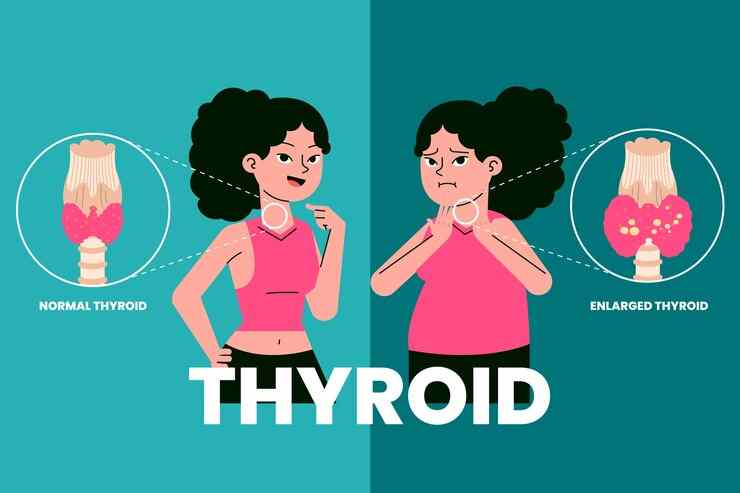Are you looking for ways to regulate your thyroid condition and also manage your weight effectively? This blog will help you learn about various tips for maintaining a healthy metabolism.
The thyroid gland is a butterfly-shaped endocrine gland that is responsible for various bodily functions. This endocrine gland is present in your neck and produces two types of hormones (thyroxine and triiodothyronine) that are secreted into the blood and then carried into every tissue in the body. Any dysfunction in the thyroid gland leads to overproduction and underproduction of the hormones.
Hypothyroidism is a condition when the thyroid gland is not producing enough hormones, which slows down the metabolism. This can lead to a reduction in the number of calories your body burns and weight gain.
On the other hand, when your thyroid gland is producing an excess amount of thyroid hormone, it boosts your metabolism, which leads to weight loss.

What are the effects of thyroid dysfunction on weight?
The thyroid is an important gland that plays a crucial role in regulating metabolism in both humans and animals. There is a complex relationship between thyroid health, body weight, and metabolism; therefore, managing weight effectively is essential for overall health.
- When there is an overproduction of thyroid hormones by the gland (hyperthyroidism), it results in a speed-up of your metabolism. In this condition, people experience unexplained weight loss, increased appetite, and muscle weakness, even if they are consuming more calories than usual.
- Hypothyroidism, also known as underactive thyroid, occurs when the thyroid gland does not make enough thyroid hormones, leading to a slowdown in metabolism. Individuals with hypothyroidism experience weight gain even after a low intake of calories, fatigue, constipation, and cold intolerance.
Tips for maintaining a healthy metabolism
Metabolism is the chemical process through which the body converts foods and drinks into energy. In this process, calories and oxygen are involved to create and release energy and support various bodily functions.
Maintaining a healthy metabolism is essential to providing your body with energy and overall well-being.
Here are some tips that can help you maintain a healthy metabolism:
- Engage in physical activity
Exercising regularly is the best way to keep you and your body active. A combination of aerobic exercise and strengthening exercise can boost metabolism, promote weight management, and also support overall health. Getting involved in physical activity helps to increase calorie expenditure, build muscle mass, and improve cardiovascular health.

- Include protein in your diet
Eating throughout the day may not benefit you; however, eating the right food in moderation can contribute to maintaining fitness and overall health. Protein intake in your diet is essential so that your body has much energy to digest and metabolise protein. Adding lean proteins to their diet can benefit individuals with thyroid disorders, as it helps regulate metabolism and manage weight.
- Avoid skipping meals
Skipping meals is not a good choice, as your metabolism starts taking fewer calories for body functions. If you’re eating a low-calorie diet, you may be noticing symptoms such as extreme fatigue. You should return to normal eating. You should consult your doctor to get a determined meal plan to maintain a healthy metabolism.
- Manage stress
Stress is a contributing factor to various health issues, like thyroid function and metabolism. By practising relaxation techniques such as yoga, meditation, and breathing exercises, you can help manage stress and regulate the thyroid gland.

- Monitor iodine intake
If you’re having a thyroid disorder, you should monitor your iodine intake, as both deficiency and excess can lead to thyroid dysfunction. You should talk to your doctor before taking any iodine supplements.
- Quit smoking
Smoking slows down the metabolism; therefore, you should stop smoking if you’re having thyroid problems.

CONCLUSION
Managing thyroid disorders is crucial for a healthy metabolism. By following these effective tips, such as having a well-balanced diet, managing stress, and engaging in physical activity, you can manage hyperthyroidism or hypothyroidism.
Reach out to Ayursparsh Clinic & Panchakarma Center in Dharwad, Karnataka, to effectively manage your thyroid health.
Consult Dr. Rashmi C. Patil, MD (Ayu), to get personalised treatment plans and lifestyle adjustments to manage your condition and improve your overall well-being.



